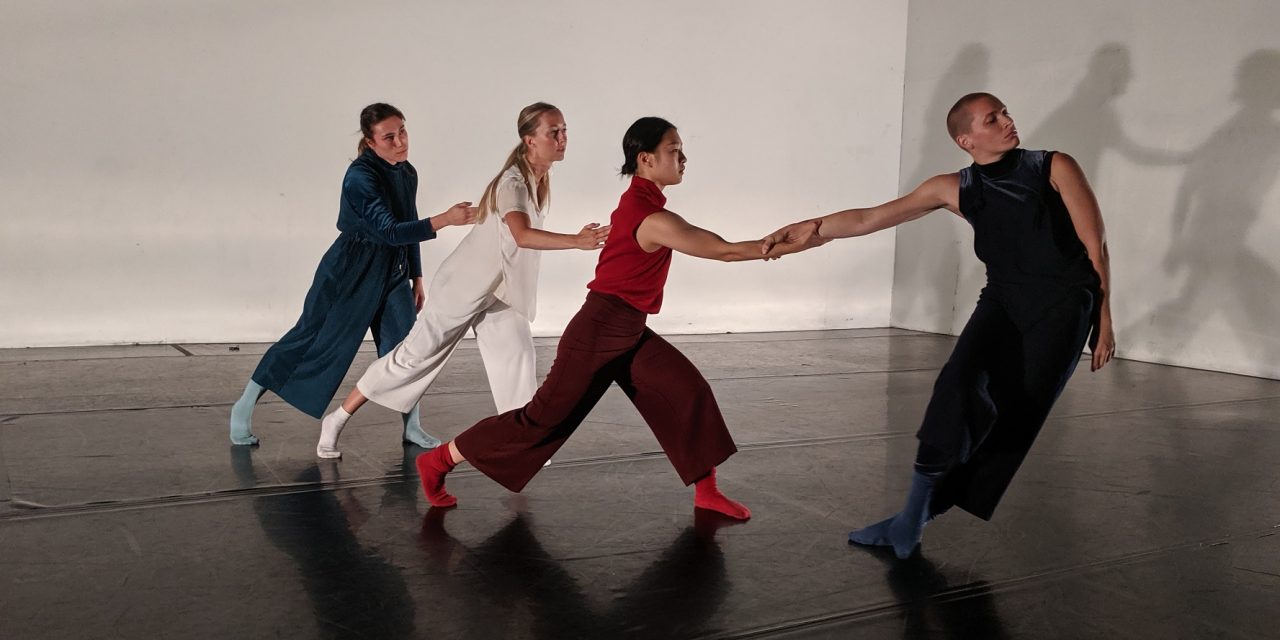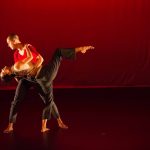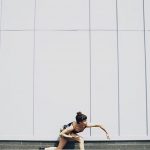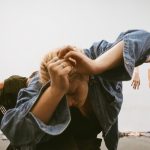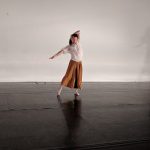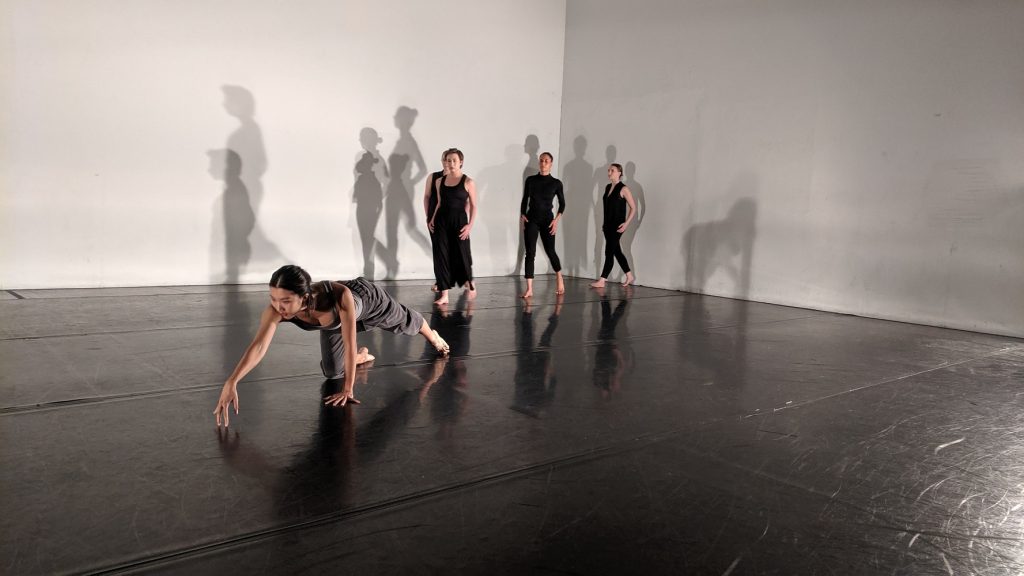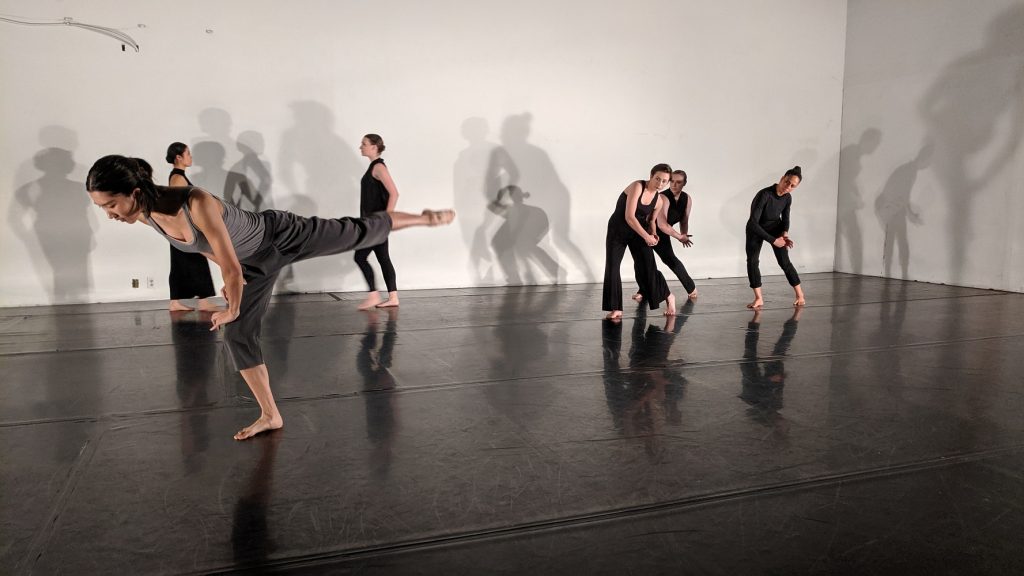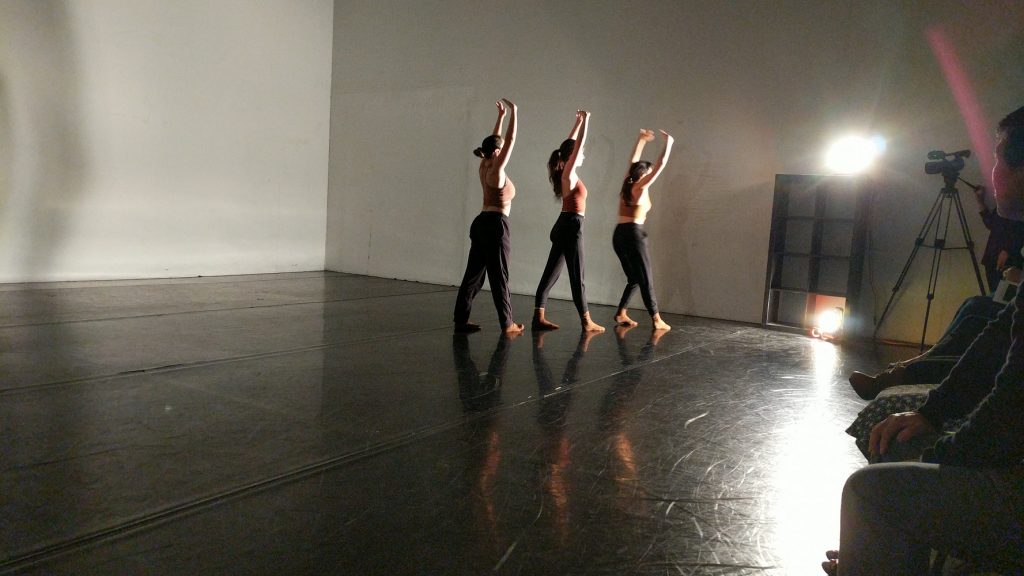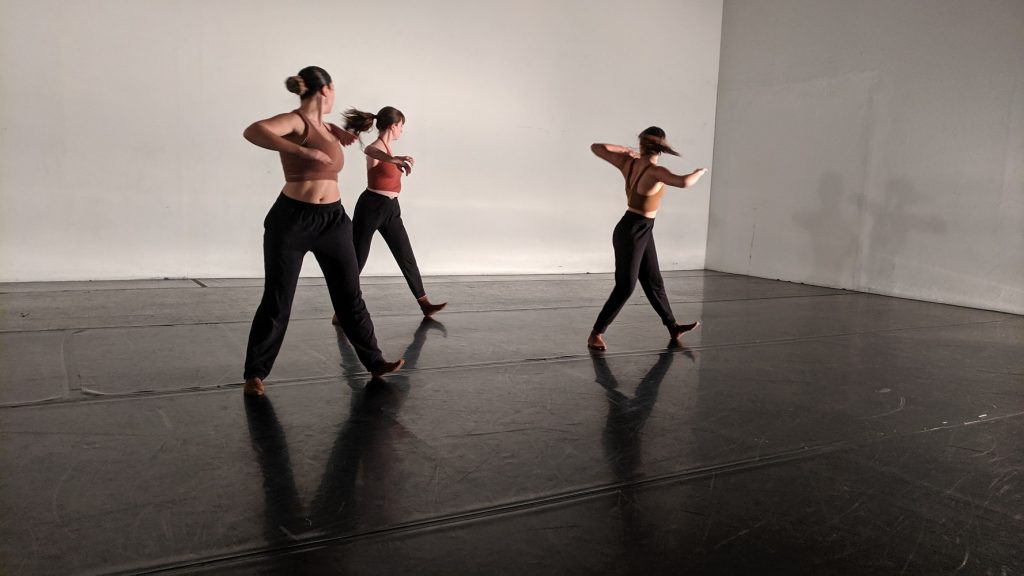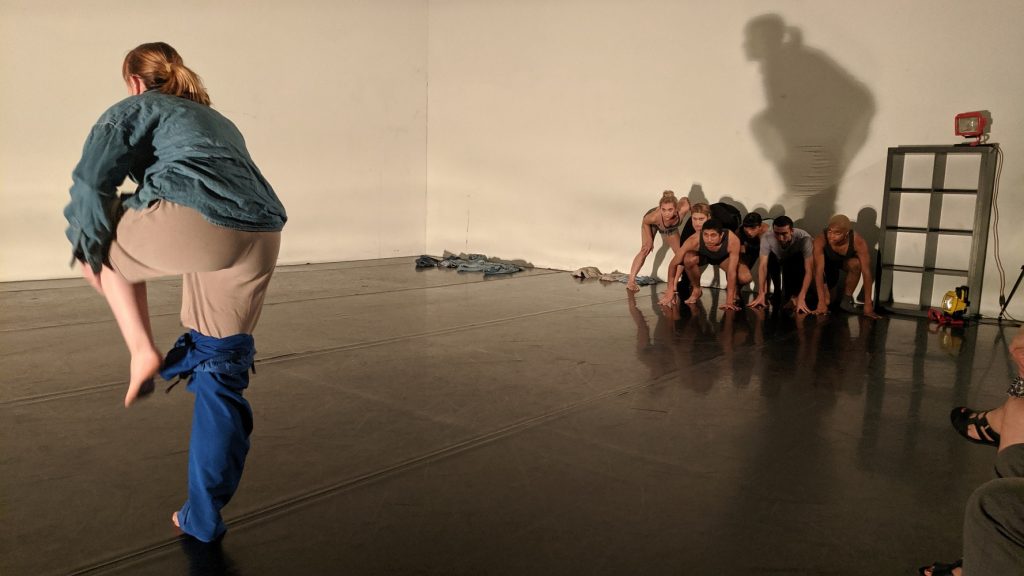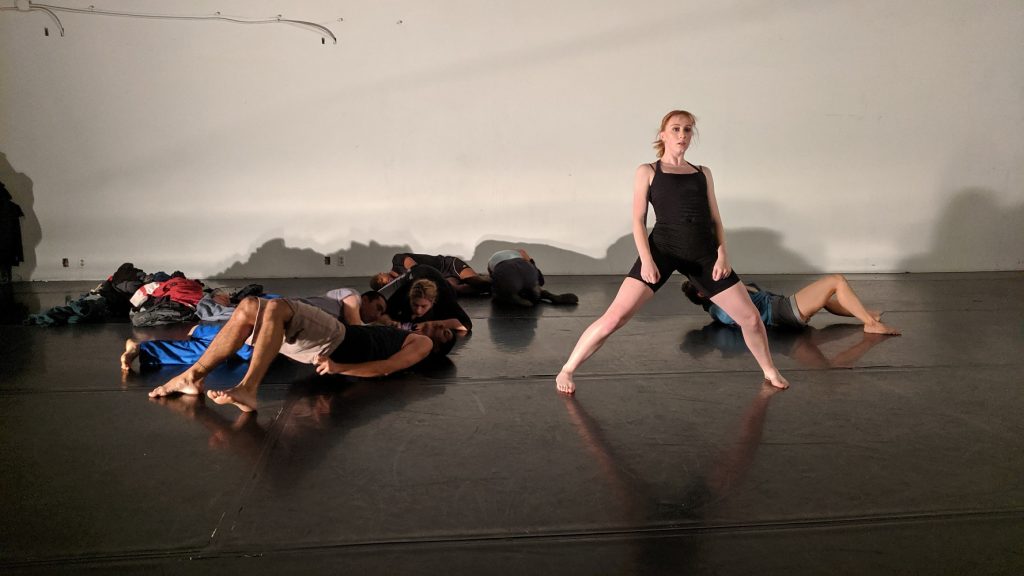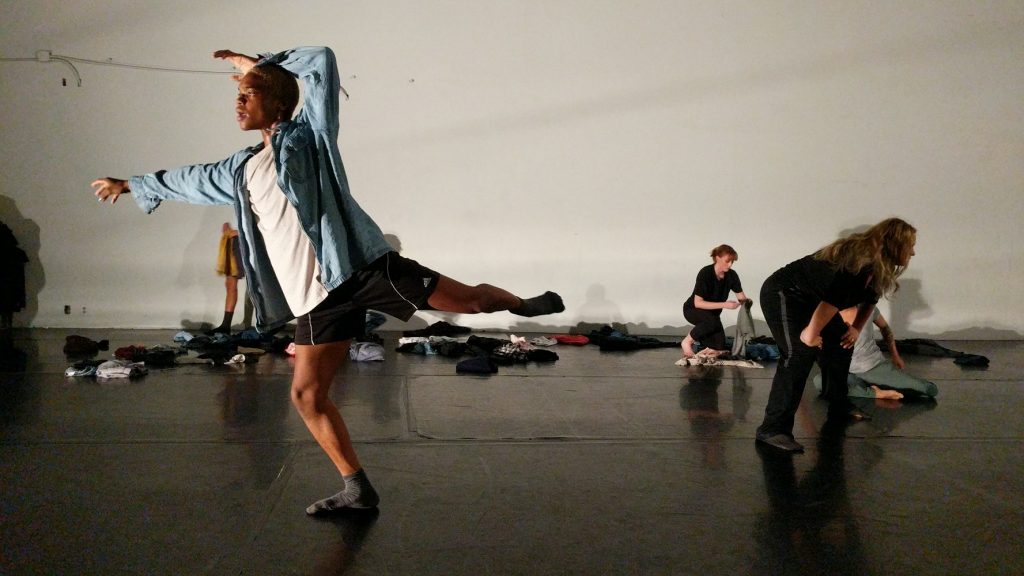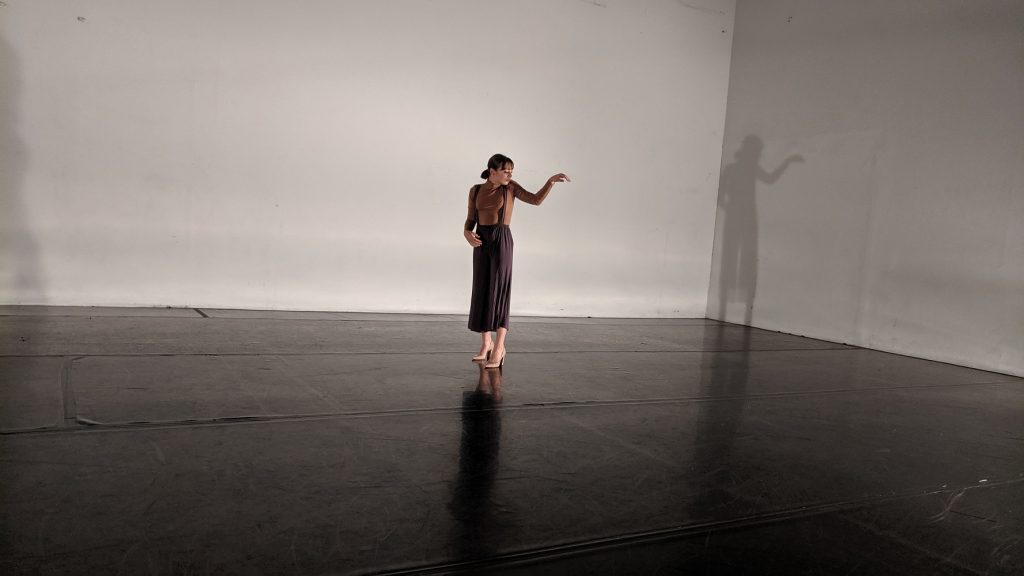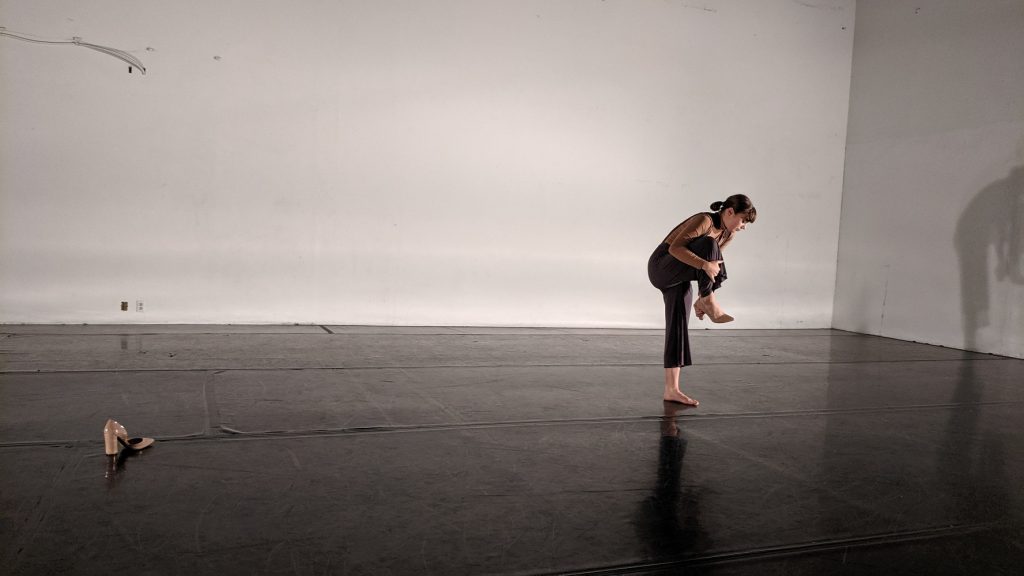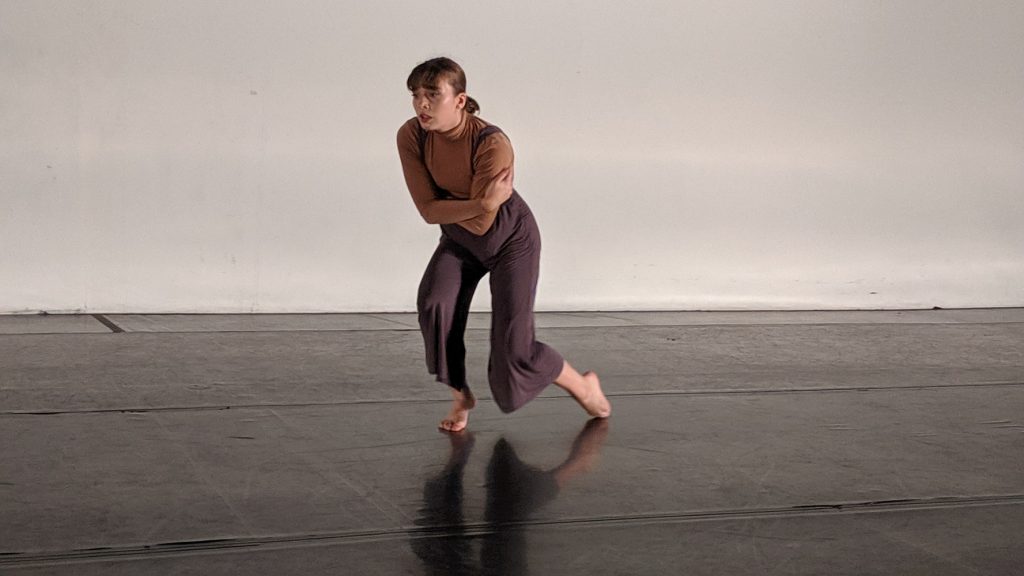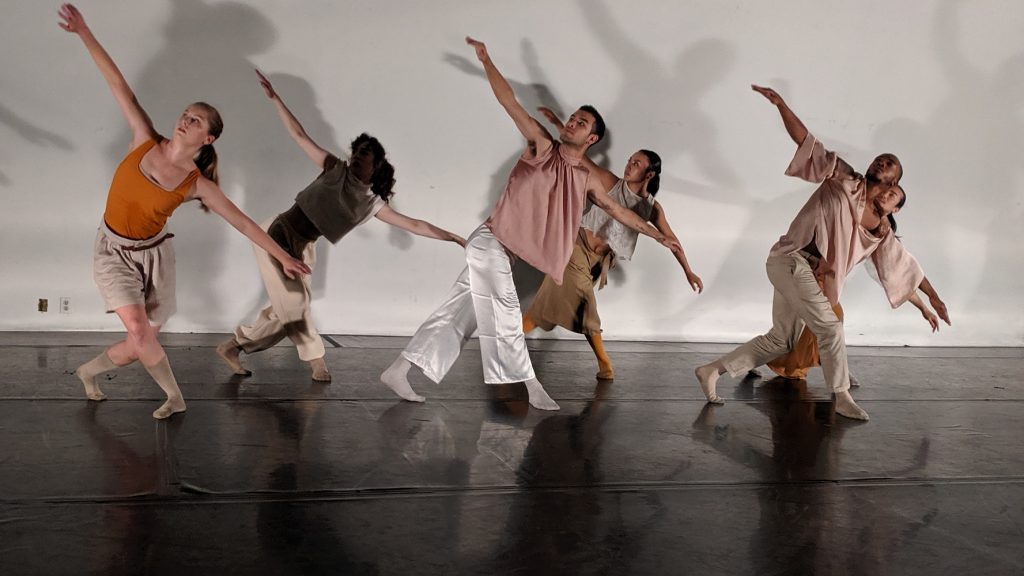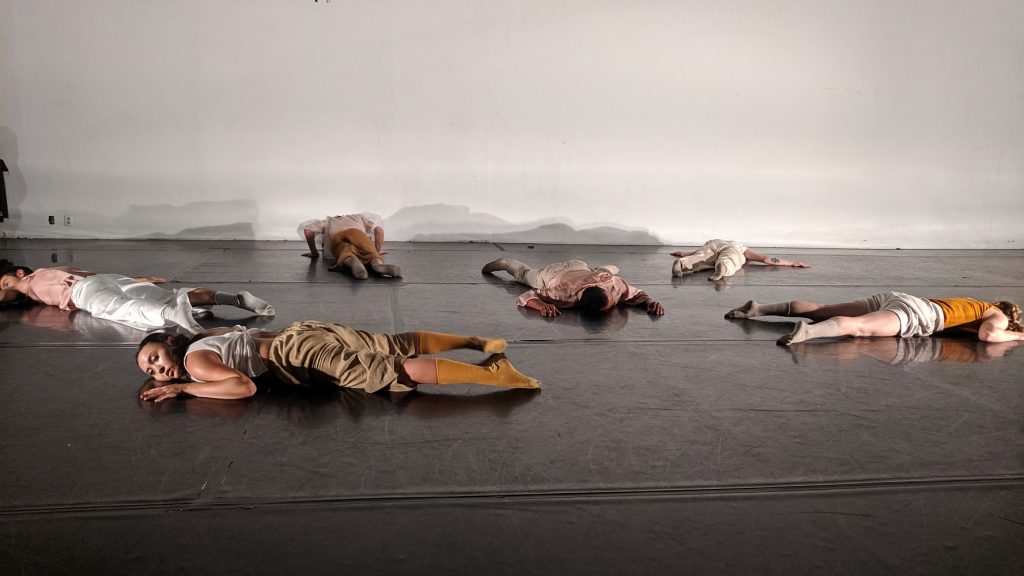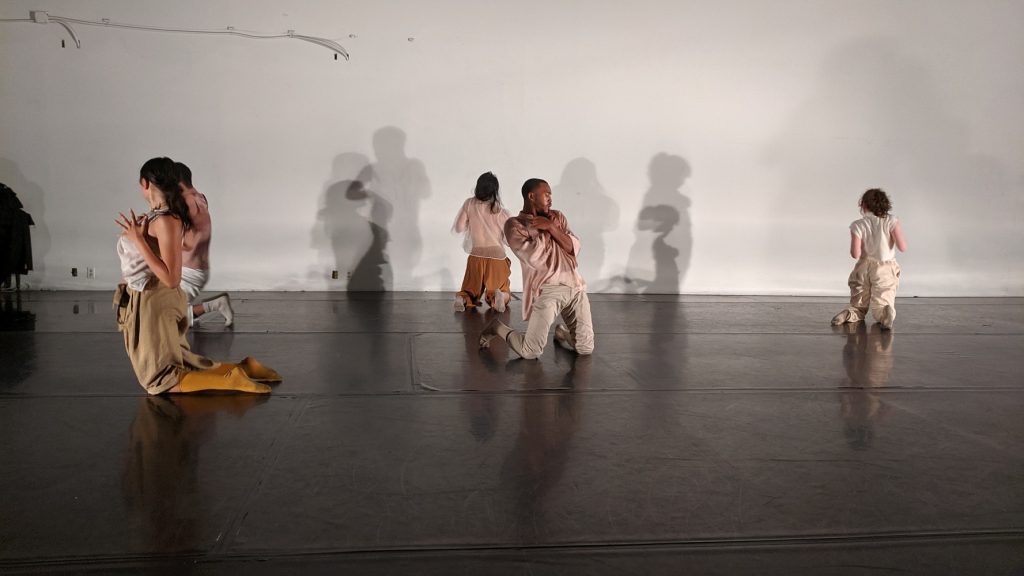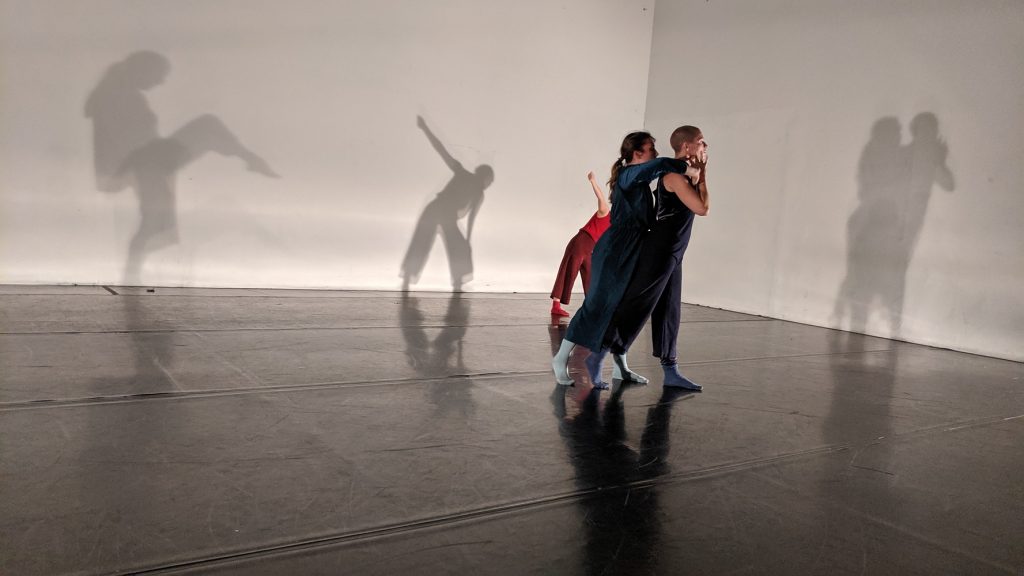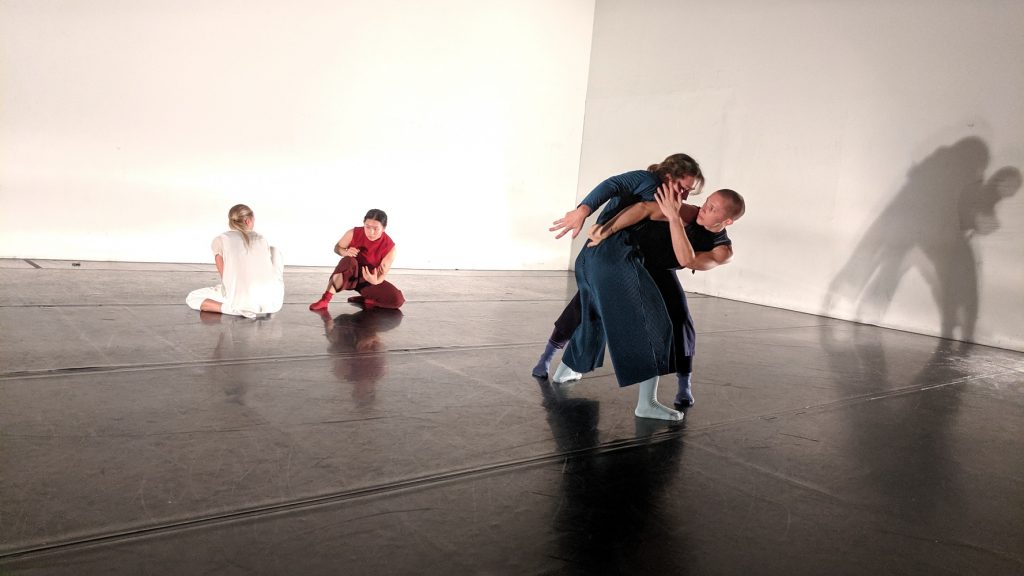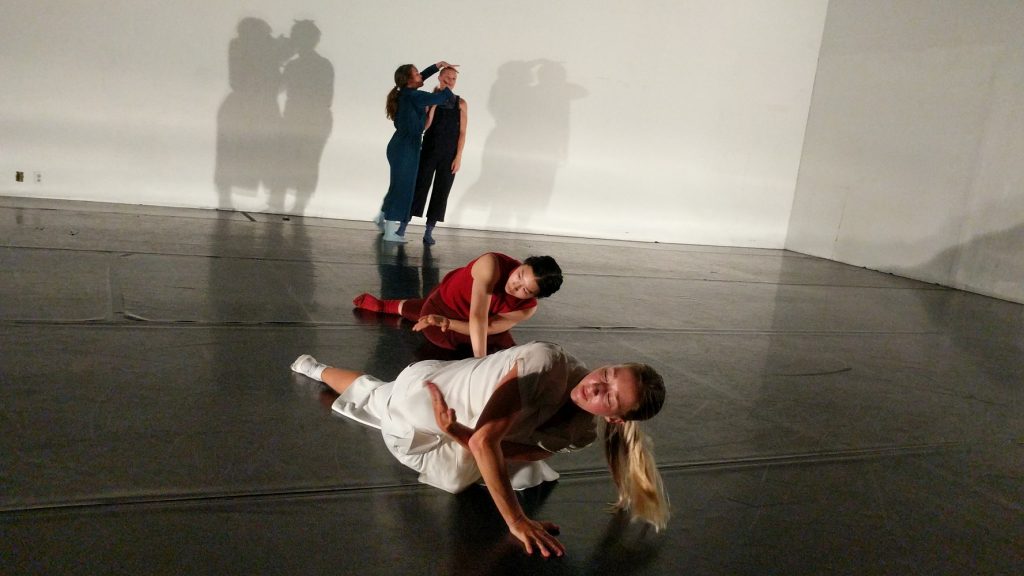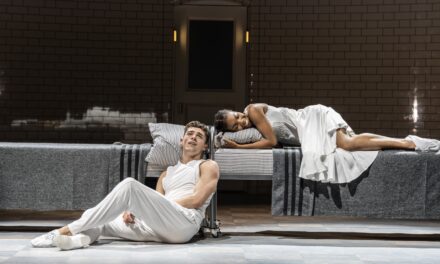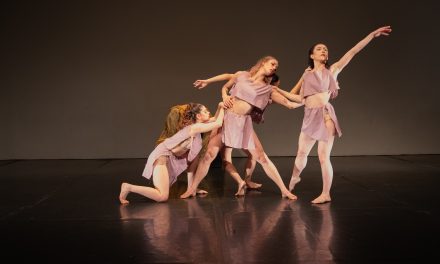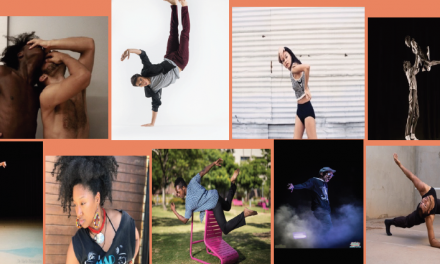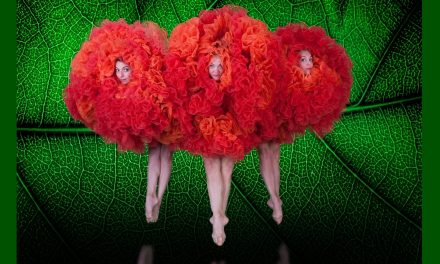SHIFT/West is only one of the many dance events created and produced by Deborah Brockus, Artistic Direct/Choreographer of BrockusRED and owner of Brockus Project Studios. Here, six inspiring choreographers took part in a three-week creative exploration of new works and received constructive feedback from Brockus and their colleagues. I attended the first of three performances of SHIFT/West on June 21, 2019 and was impressed by the choreographic potential presented.
A couple of the choreographers were familiar to me, but the others were not. Boroka Nagy is the founded of Re:borN Dance Interactive, a contemporary dance company based in Orange County whose work I have previously reviewed. Lenin Fernandez, Jr. has presented his work around LA and he has performed with Sarah Elgart’s Arrogant Elbow and the Los Angeles Contemporary Dance Company. Sarah Stanley is the co-founder of TIMES TWO Dance Collective with Brynn Bodair and has previously performed as a member of DIAVOLO and The Assembly. The other three were new to me but have obviously been making dances prior to this showing. A few of the works felt complete, while others were clearly works-in-progress.
In These Walls Have Eyes, choreographer Boroka Nagy used familiar gestures as well as ominous shifts in emotions, robotic movement and sinister staring or glances to explore the increased surveillance that this nation has experienced by our government, social media outlets and other technological apparatuses such as cell phones and computer devices. Nagy’s use of dancers moving separately and then merging seamlessly in and out of unison was impressive. The cast who wonderfully conveyed Nagy’s vision of paranoia, fear and caution were Kelsey Ang, Kristy Dai, Rebekah JoAnn Guerra, Maili Schlosser, Skye Schmidt, and Victoria Soneff.
Sketches of pathways was choreographed by Ally Pawlowski and performed strongly by Quinn Foster, MarieElena Martingano, and Pawlowski who said later that she considered this piece as an outline for a longer work. She began with each dancer expressing separate emotions by either internalizing them or displaying them outwardly. The three women shifted positions and pathways to form open or connected lines, and with each direction the individual emotions were altered. When, however, Pawlowski dropped the individuality of movement phrases and journeyed into a very long unison phrase, the dance no longer felt like a trio and lost its focus. Instead, we were left with three women doing the identical solo. Perhaps the longer version will clarify this choice.
I was fascinated with much of Fold, co-choreographed by Brynn Bodair and Sarah Elizabeth Stanley, but perplexed about its true meaning. The dance was beautifully constructed and performed, and though the use of clothing was admirable it was in no way new. Moving bodies in and out of pants, shirts and other items of wear has been done for generations. My intrigue came from the structure of the work, not the overuse of the props which often caused the movement to become awkward. Perhaps Bodair and Stanley could experiment with taking the clothes away during certain sections to see if they are indeed important to their story. Fold was performed to a dynamic original score by Jon Lloyd and the very talented cast included Bodair and Stanley, along with Kaia Makihara, Nick McGhee, Keilan Stafford, Monica Williams, and Molly Wilson.
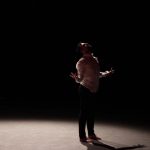
Brian Golden – Photo courtesy of the artist
Brian Golden created two works for SHIFT/West, but on this night he presented only one, a solo for Brooke Lutz titled Dysphoria that was performed to I’ll Be Seeing You by Billie Holiday. Golden tried to portray the medical definition of dysphoria: “a distressed state arising from conflict between a person’s gender identity” and the the use of the high heel shoes was a good one. Though he managed to showcase the very strong talents of Ms. Lutz, a clear statement of gender identity was not made.
qwe’re is a word that choreographer Jason Vu made up to represent “queer we are” or “we are queer”. The dance was sophisticated in structure, beautifully performed and stylishly costumed, but Vu’s message faded in and out of focus. Its strength lay within the wonderful solos he choreographed for his cast aided by the recorded stories told by people, including Vu, explaining their personal struggles with sexual or gender stereotyping and/or identity. The cast of qwe’re included Diego Mesa, Becka Klebba, André Gary, Tessa Nesis, Caroline Smith, and Vu.
Lenin Fernandez, Jr.’s intriguing Suspension of Sound closed out the evening. Performed wonderfully by Stephanie Dai, Megan Guise, Krystal Masteller, and Lydia Purves, Fernandez pared down words, feelings, familiar gestures and recognizable conversations to their barest elements. He then transformed them into clean, clear and abstract movements, but he never dehumanized them. It was as if he edited a long and descriptive story down to just a few simple words but still clearly conveyed its meaning. Fernandez aptly titled this work. Even the collage of very familiar songs did not replace or subtract from his process. The songs did not speak for the edited words, nor did the edited words depend on the songs. Fernandez artfully suspended sound from words only to speak volumes.
SHIFT/West provides a wonderful chance and a safe environment for young artists to experiment, explore, succeed and/or to fail. Let’s thank Deborah Brockus for supporting and promoting dance and dance artists.
For more information on Brockus Project Studios, click here.
Featured image: Suspension of Sound by Lenin Fernandez, Jr. – Photo by Roger Martin Holman for LA Dance Chronicle

